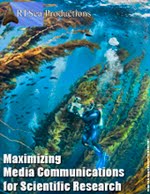 Several weeks ago, the Copenhagen Climate Conference (COP15) concluded and the dust from all the commotion, protests, political positioning has finally settled. And do you know what was settled? Do you know what the accord that will now be circulated amongst member nations actually proposes? Well, don't be shy. Many people don't, so you're in good company.
Several weeks ago, the Copenhagen Climate Conference (COP15) concluded and the dust from all the commotion, protests, political positioning has finally settled. And do you know what was settled? Do you know what the accord that will now be circulated amongst member nations actually proposes? Well, don't be shy. Many people don't, so you're in good company. The World Wildlife Fund (WWF) assembled a very nice primer on the building blocks of a pre-conference anticipated agreement, in language we can all understand. The New Climate Deal: A Pocket Guide is a PDF download that reviews the key points, the reasons behind each one and the implications faced by developed and developing nations.
The World Wildlife Fund (WWF) assembled a very nice primer on the building blocks of a pre-conference anticipated agreement, in language we can all understand. The New Climate Deal: A Pocket Guide is a PDF download that reviews the key points, the reasons behind each one and the implications faced by developed and developing nations. Wikipedia summarizes the final outcome, the actual Copenhagen Accord. Brazil, China, South Africa, and the United States drafted the non-binding document and it has received some strong criticism from other nations, criticism that runs the gamut from proclaiming the accord is unfair or punitive to the accord not being strong enough or doing enough to have any measurable impact on climate change.
Wikipedia summarizes the final outcome, the actual Copenhagen Accord. Brazil, China, South Africa, and the United States drafted the non-binding document and it has received some strong criticism from other nations, criticism that runs the gamut from proclaiming the accord is unfair or punitive to the accord not being strong enough or doing enough to have any measurable impact on climate change.Whatever its deficiencies, it's a start in the right direction. But, like the controversy being played out in the U.S. over healthcare reform, settling for a half-way measure may be worse than no measure at all. Yet having no measure at all would be equally disastrous. Climate change is probably the first truly unifying global issue facing mankind and a monumental test of international diplomacy, understanding, and compassion.
Click here to download a PDF of the WWF report.
Click here to view the Wikipedia summary of the Copenhagen Accord.

















No comments:
Post a Comment